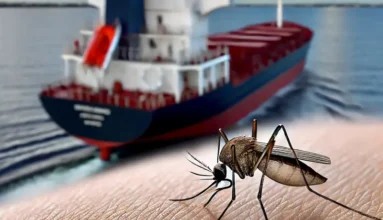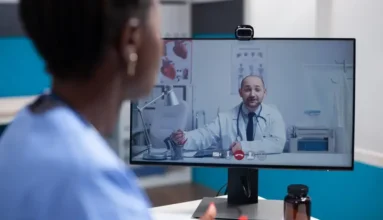Maritime Medical Services
Introduction: The Importance of Maritime Medical Services
Maritime medical services offer essential healthcare for seafarers who face unique health risks at sea. According to Mya Care, these services include remote consultations, emergency guidance, and preventive care to protect crew health and safety.
Main Responsibilities of Maritime Medical Professionals
1. Remote Medical Assistance
Firstly, maritime doctors provide remote care for seafarers using telemedicine. They offer advice on handling injuries, giving treatments, and performing simple medical procedures when necessary.
2. Handling Common Health Issues at Sea
Moreover, seafarers often face conditions like colds, dehydration, seasickness, and skin problems. Maritime medical specialists guide them in managing these issues to ensure quick recovery and avoid further problems.
3. Managing Traumatic Injuries
Because of the high risks on board, seafarers can suffer various injuries, from falls to equipment-related accidents. Medical officers on board, with help from maritime doctors, can give first aid and, if needed, recommend evacuation for serious cases.
4. Diving-Related Conditions
Furthermore, conditions like decompression sickness and gas embolism affect deep-sea divers. Maritime doctors instruct on treating these injuries and help arrange specialized care if necessary.
5. Chemical Exposure Risks
Seafarers working on rigs may face chemical hazards. Maritime doctors can assess these injuries remotely, advising on immediate care or evacuation when needed to prevent severe health issues.
6. Vaccinations and Preventive Care
In addition, maritime medical professionals arrange vaccinations and preventive care to stop the spread of illnesses on ships, especially when visiting high-risk areas.
Ensuring Health for Sea Travel
Before long trips, seafarers undergo health checks to ensure they are ready for the journey. Maritime doctors perform physical and mental evaluations, which help reduce medical risks on board.
Safety Audits and Protocols for Medical Care
To maintain safety, maritime doctors also perform audits to check that ships have the right medical supplies and equipment. They ensure clear protocols are in place for handling emergencies.
Training for Onboard Medical Staff
Training is crucial for onboard medical officers and nurses. Maritime doctors teach them how to handle minor injuries, manage common conditions, and follow remote guidance effectively.
Conclusion
In conclusion, maritime medical services are vital for keeping seafarers healthy and safe. With support in telemedicine, preventive care, and emergency help, maritime doctors are key to safe journeys at sea.
Source: Information adapted from Mya Care’s article on Maritime Medical Services.


